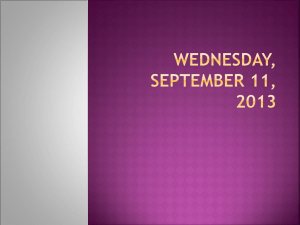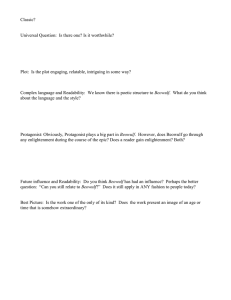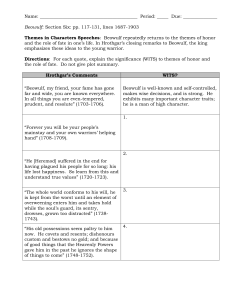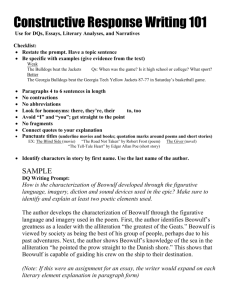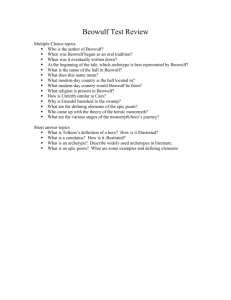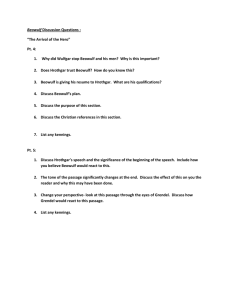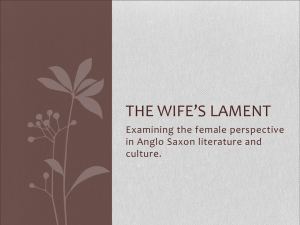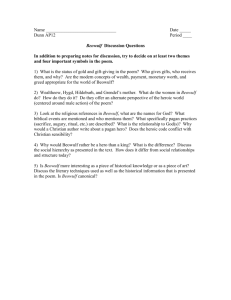Beowulf Language Exe..
advertisement
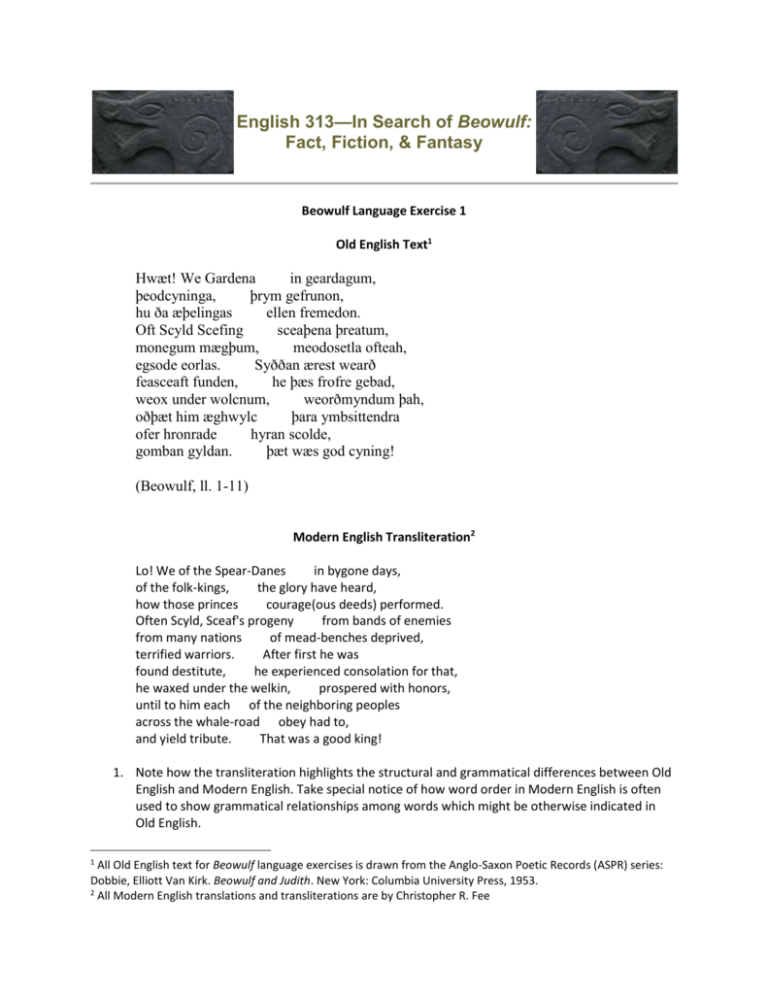
English 313—In Search of Beowulf: Fact, Fiction, & Fantasy Beowulf Language Exercise 1 Old English Text1 Hwæt! We Gardena in geardagum, þeodcyninga, þrym gefrunon, hu ða æþelingas ellen fremedon. Oft Scyld Scefing sceaþena þreatum, monegum mægþum, meodosetla ofteah, egsode eorlas. Syððan ærest wearð feasceaft funden, he þæs frofre gebad, weox under wolcnum, weorðmyndum þah, oðþæt him æghwylc þara ymbsittendra ofer hronrade hyran scolde, gomban gyldan. þæt wæs god cyning! (Beowulf, ll. 1-11) Modern English Transliteration2 Lo! We of the Spear-Danes in bygone days, of the folk-kings, the glory have heard, how those princes courage(ous deeds) performed. Often Scyld, Sceaf's progeny from bands of enemies from many nations of mead-benches deprived, terrified warriors. After first he was found destitute, he experienced consolation for that, he waxed under the welkin, prospered with honors, until to him each of the neighboring peoples across the whale-road obey had to, and yield tribute. That was a good king! 1. Note how the transliteration highlights the structural and grammatical differences between Old English and Modern English. Take special notice of how word order in Modern English is often used to show grammatical relationships among words which might be otherwise indicated in Old English. 1 All Old English text for Beowulf language exercises is drawn from the Anglo-Saxon Poetic Records (ASPR) series: Dobbie, Elliott Van Kirk. Beowulf and Judith. New York: Columbia University Press, 1953. 2 All Modern English translations and transliterations are by Christopher R. Fee 2. Underline the subject of each sentence in the Modern English text; find and underline the Old English equivalents. 3. Circle the verb of each sentence in the Modern English text; find and circle the Old English equivalents. 4. Highlight elements of noun phrases (articles, adjectives, etc.) associated with the subject of each sentence in the Modern English text; find and highlight the Old English equivalents.
